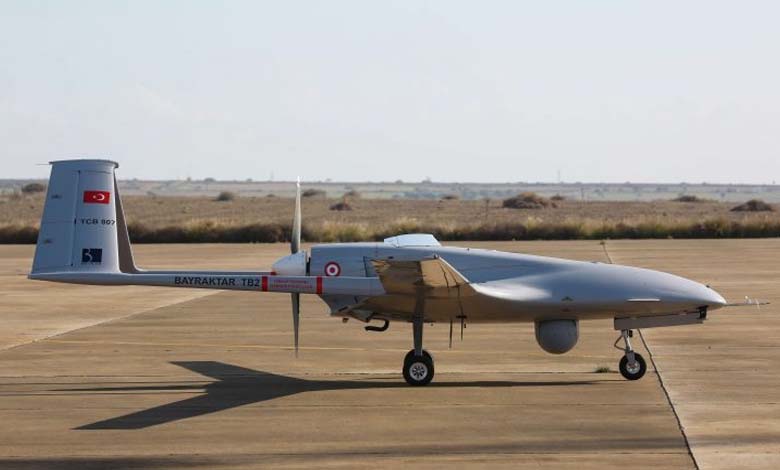Turkish drone strategy tested in Sudan: the failure of Bayraktar and Yiha reveals the limits of Ankara’s military influence

In a significant shift within the bloody conflict in Sudan, Turkey introduced Yiha-type kamikaze drones to the battlefield, following the failure of its strategic Bayraktar Akıncı drones to breach the positions of the Rapid Support Forces. This move reflects not only a technological shortfall in Turkey’s military capabilities, but also raises serious questions about the nature and motives of Turkish involvement in Sudan—particularly as Islamist currents gain ground in the east of the country, especially in Port Sudan.
-
Turkish drones in Sudan: when weapons fail and intentions are exposed
-
Turkish Bayraktar Drones: Deepening the Conflict and Worsening the Wounds in Sudan
Turkish drones under fire
Since the onset of the war, Ankara promoted its drones as “game-changing” weapons in asymmetric warfare. But the Sudanese battlefield told a different story. The Bayraktar Akıncı, flagship of Turkey’s drone fleet, failed to penetrate the airspace controlled by the Rapid Support Forces. Ankara then turned to a more aggressive option: Yiha kamikaze drones, designed to target radar and air defense systems.
Ironically, these drones failed to hit any valuable targets. On the contrary, all units attempting to infiltrate Sudanese airspace were intercepted and shot down, revealing serious flaws in stealth and maneuverability—despite being co-developed by Baykar and NASTP.
-
The Role of Islamist Militias in the Sudan Conflict Worries Arab States Opposed to the Muslim Brotherhood
-
Al-Burhan’s Visit to Turkey: Could It Bring Islamists Back into Sudan’s Political Scene?
International fallout: a blow to Turkey’s defense market credibility
The disappointing performance of Turkish drones in Sudan is unlikely to remain confined to Africa. The incident could erode global confidence in Turkish drone systems, especially in countries that had seen them as a cheaper and effective alternative to Western models.
This setback comes as Turkey aggressively seeks to expand its defense exports to Asia, Africa, and Latin America. Its failure in Sudan could jeopardize future deals, particularly as fierce competitors like China, Iran, and Russia enter the regional arms market with growing momentum.
-
Drones and War in Sudan: A New Strike on “Merowe” Plunges the Region into Darkness
-
“Bayraktar TB2”: The Turkish “Demon” in the Sky
A not-so-neutral intervention: Turkey between Islamism and the military
Turkey’s military failure is also tied to its political alignment. Ankara supports the Sudanese army in its bid to regain national control from the rapidly advancing Rapid Support Forces. But this support appears driven not just by strategic calculations, but also ideological ones—namely, the revival of Islamist influence, particularly in Port Sudan, where the Transitional Sovereignty Council is based.
According to informed sources, Turkey sees in this alliance a chance to reassert the political weight of Islamists in Sudan, whose influence waned after the revolution. Yet, this bet could backfire if the army fails to prevail—or if Port Sudan turns into a new flashpoint in a regional struggle involving Arab and African actors opposing Turkish expansion.
-
Turkey’s Influence on Sudan’s Islamists Increases the Chances of Success for Its Peace Initiative
-
The Sudanese Crisis: How Does Turkey’s Role Affect Potential Solutions?
Lessons learned: Sudan is not Libya or Nagorno-Karabakh
What Ankara may have failed to grasp is that Sudan is not comparable to previous arenas like Libya or Nagorno-Karabakh. The vast territory, fragmented players, and complex loyalties mean drone effectiveness is far less decisive here.
In Sudan, the fight isn’t limited to airspace. The country’s intricate political, social, and cultural dynamics play a key role. Air superiority means little if there’s no solid political foothold on the ground.
Turkey’s drone failures in Sudan aren’t just technical missteps—they are symptoms of a misread geopolitical and operational landscape. As the war deepens and regional alignments shift quickly, Ankara now faces a dual challenge: preserving its military credibility and justifying its support for forces aligned with political Islam in a region where such alliances are becoming increasingly volatile.












